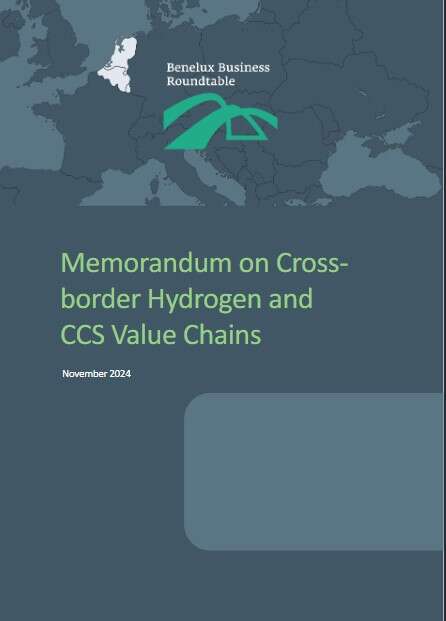Cross Border CCS and Hydrogen Value Chains
The Benelux region is ideally positioned to spearhead the development of much-needed hydrogen and
CCS value chains. Since its establishment in 1958, the Benelux has consistently addressed regional
challenges through collaboration, fostering growth and setting a powerful example for the rest of
Europe. As one of Europe’s most prosperous areas, the Benelux is home to vital industrial clusters and
major ports that produce high-value products and serve as key hubs for the flow of energy, feedstock,
1 The future of European competitiveness, September 2024.
2 Antwerp Declaration, signed by more than 1200 organizations, spanning 25 sectors, February 2024.
3 EU Council’s Strategic Agenda 2024-2029, June 2024; New Political Guidelines for the European Commission 2024-2029, July 2024.
4 The future of European competitiveness, September 2024.
5 Oslo Declaration, June 2024.
The Benelux’s strategic location near the North Sea and surrounding countries (such as the UK, Norway,
and Denmark), offers significant potential for renewable energy generation, natural gas, and CO2
storage. Potential international partnerships with resource-rich countries to supply sustainable
molecules for energy and feedstock to its ports’ terminals would further solidify its role as a leader in
the clean energy transition. This geographic advantage and dense industrial activity facilitate economies
of scale, allowing for more efficient cross-border value chain development. With established industrial
value chains (steel, chemicals, refineries, cement & lime, etc.) supported by a highly skilled workforce,
renowned educational & research institutions, existing infrastructure and cutting-edge innovations, the
region is exceptionally well-equipped to lead Europe’s clean industrial transition and to future-proof
existing and novel strategic industrial activities
CCS and Hydrogen
.png)




